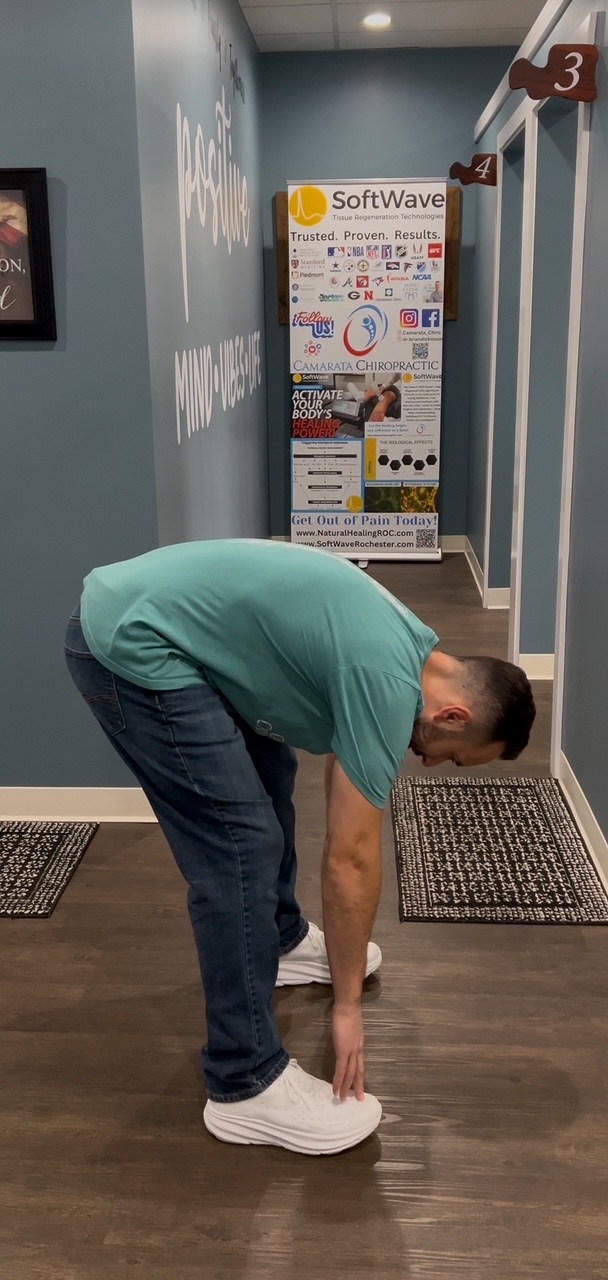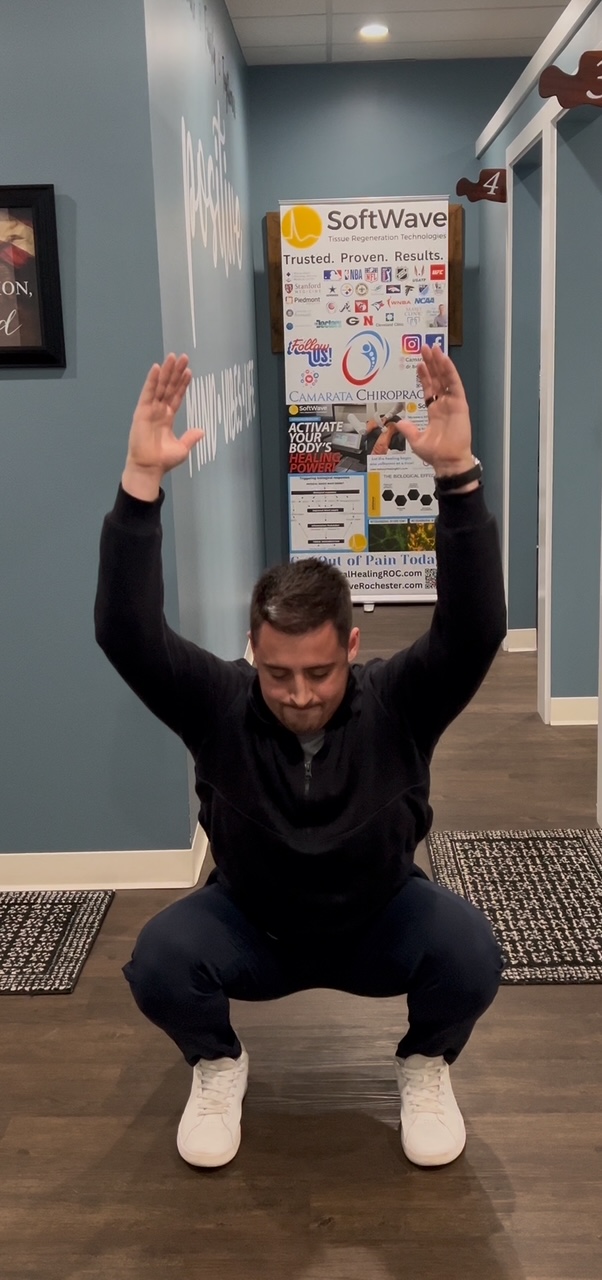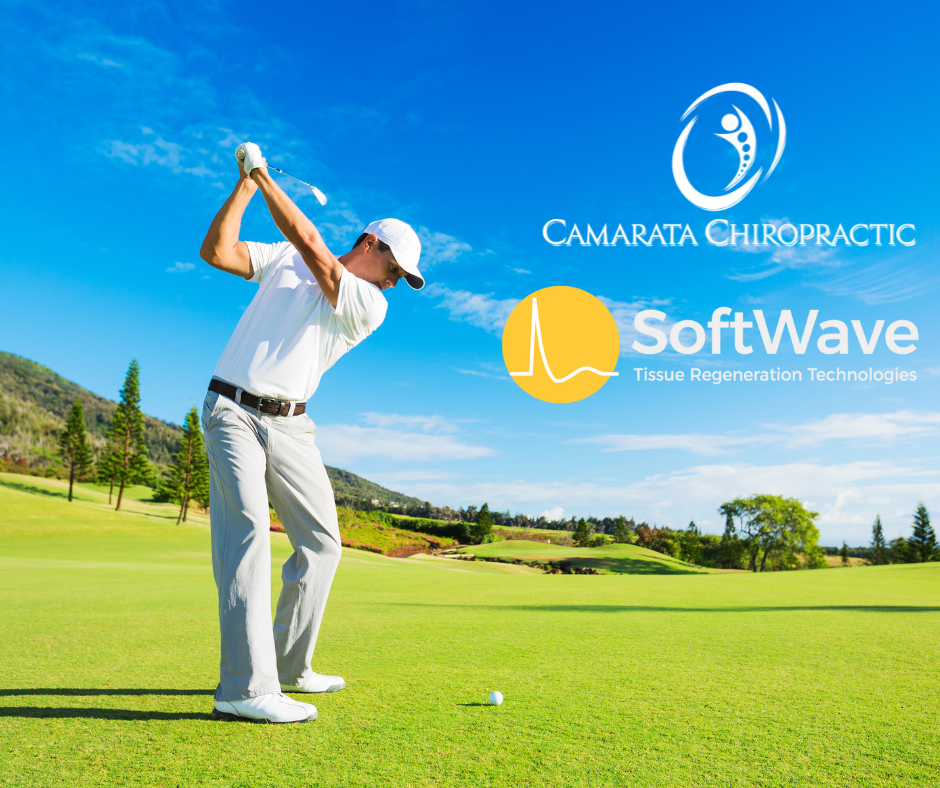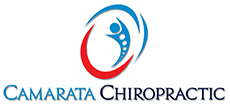The Importance of Toe Touches and Overhead Squats in TPI Golf Assessments

Golf is a game of precision, power, and control, requiring a seamless connection between mobility, stability, and strength. To optimize performance and reduce the risk of injury, a golfer’s movement patterns must be assessed and corrected when necessary. At Camarata Chiropractic & Wellness, our Titleist Performance Institute (TPI) assessments focus on key mobility screenings, including the toe touch test and overhead squat test, to evaluate a golfer’s flexibility, posture, and structural imbalances. These two tests provide critical insights into a golfer’s biomechanics, helping to identify limitations that may be affecting their swing mechanics, power output, and overall game.
The Toe Touch Test: Evaluating Posterior Chain Mobility & Core Stability
The toe touch test is a simple yet effective screening tool that assesses hamstring flexibility, hip mobility, lower back function, and core control. Golfers who struggle with touching their toes may have underlying mobility restrictions, muscular imbalances, or stability issues that can directly impact their swing.

What the Toe Touch Test Reveals:
-
Hamstring and Lower Back Tightness: Tight hamstrings and restricted lower back mobility can limit a golfer’s ability to properly hinge at the hips, reducing their ability to generate power from the lower body.
-
Hip Dysfunction: A lack of hip mobility leads to compensations elsewhere in the body, increasing stress on the lower back and knees during the golf swing.
-
Core Stability Issues: If a golfer struggles with toe touches despite having good flexibility, it may indicate poor core activation and control, which is essential for spinal stability and rotational power.
How Poor Toe Touch Performance Affects a Golfer’s Swing:
Golf requires efficient rotation and weight transfer. Limited hamstring and hip mobility can restrict the ability to load properly into the backswing and transition smoothly into the downswing. This often leads to early extension, where the golfer’s hips move toward the ball prematurely, resulting in decreased accuracy, power loss, and increased strain on the lower back.
The Overhead Squat Test: A Full-Body Mobility and Stability Assessment
The overhead squat test is a foundational movement assessment in TPI screenings that evaluates a golfer’s postural alignment, joint mobility, core stability, and movement efficiency. A proper squat requires coordination between the ankles, knees, hips, thoracic spine, and shoulders—critical areas for a powerful and consistent golf swing.

What the Overhead Squat Test Reveals:
-
Ankle and Hip Mobility Deficiencies: Limited ankle dorsiflexion or hip flexion restricts the ability to squat deeply and maintain a balanced stance, leading to inefficient weight shifts during the swing.
-
Thoracic Spine and Shoulder Mobility: A restricted upper back and shoulders limit the ability to maintain proper posture and create a full range of motion in the backswing and follow-through.
-
Core and Pelvic Stability: If a golfer leans forward excessively or struggles to keep their arms overhead, it may indicate weak core engagement and poor pelvic control, increasing the risk of excessive spinal flexion or extension during the swing.
How Overhead Squat Deficiencies Affect a Golfer’s Swing:
A golfer with mobility restrictions in their squat pattern often struggles with maintaining spine angle and balance throughout the swing. This can lead to inconsistent ball striking, poor rotation mechanics, and an increased likelihood of injuries such as low back pain, knee strain, and shoulder impingements. A lack of overhead mobility can also lead to compensatory movements, such as excessive wrist hinge or an unstable club path, reducing shot accuracy and power.
Why These Tests Are Critical for Golfers
The toe touch and overhead squat tests provide a quick yet highly informative evaluation of a golfer’s movement efficiency, structural imbalances, and functional mobility. By identifying deficits early, we can implement corrective strategies, including chiropractic care, SoftWave therapy, stretching, foam rolling, massage techniques, and strengthening exercises, to improve movement quality and optimize golf performance.
Key Benefits of Addressing Mobility Limitations:
-
Enhanced Swing Mechanics: Improved mobility and stability allow for greater rotational capacity and a more efficient, repeatable swing.
-
Injury Prevention: Addressing mobility deficits reduces stress on joints and muscles, lowering the risk of golf-related injuries.
-
Increased Power & Distance: A properly functioning kinetic chain enables golfers to generate more force from the ground up, translating to increased clubhead speed and greater driving distance.
-
Improved Longevity in the Game: Mobility training ensures that golfers can play at a high level for years without chronic pain or movement restrictions.
Unlock Your Golf Potential at Camarata Chiropractic & Wellness
At Camarata Chiropractic & Wellness, our Golf Rx Program integrates TPI movement assessments, chiropractic care, SoftWave therapy, and customized mobility training to help golfers move better, play stronger, and stay injury-free. If you’re struggling with flexibility, pain, or inconsistent performance, our team is here to identify and correct the root cause of your limitations.
Ready to improve your mobility, reduce pain, and enhance your golf game? Contact us today to schedule your TPI golf assessment and take your performance to the next level!
New Patient Scheduler Online Here! // Give us a call! 585-617-4145 // 3237 Union St North Chili NY 14514
Follow us on Facebook and Instagram for awesome content, health and wellness tips!

